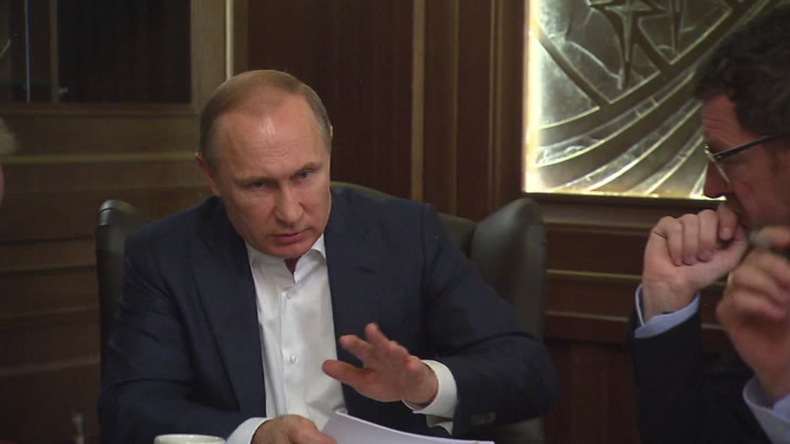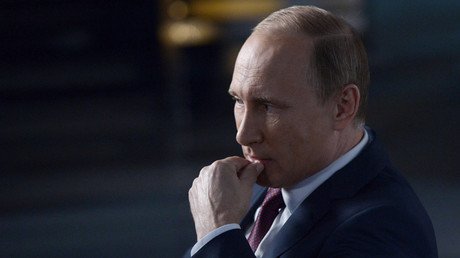The fall of the Berlin Wall and USSR did not unite Europe, but only moved the division line eastwards. The West still declares Russia an enemy each time that Moscow takes an independent stance and asserts its national interests, President Putin told Bild.
“We did everything wrong from the outset,” Russian President Vladimir Putin said in an interview with German newspaper Bild. “We did not overcome Europe’s division: Twenty-five years ago the Berlin Wall fell, but Europe’s division was not overcome, invisible walls simply moved to the East. This created the foundation for mutual reproaches, misunderstanding, and crises in the future.”
Russia’s most crucial mistake during these years was a failure to clearly declare and actively protect national interests from day one, Putin said.
“We have failed to assert our national interests, while we should have done that from the outset. Then the whole world could have been more balanced,” Putin said.
German politicians had foreseen that antagonism between Cold War opponents would only grow unless the format of international relations and balance of power in Europe changed radically, the Russian President said, citing archived records of talks which took place between German and Soviet diplomats at the time.
The “patriarch of European politics” at the time, German diplomat Egon Karl-Heinz Bahr said on June 26, 1990: “If while uniting Germany we do not take decisive steps to overcome the division of Europe into hostile blocs, the developments can take such an unfavorable turn that the USSR will be doomed to international isolation.”
The whole of central Europe, either with East Germany or without it, according to Bahr’s concrete proposals, should have formed a separate alliance with the participation of both the Soviet Union and the US, Putin said.
“If there had been political will, if they had wanted to, they could have done anything,” Putin said. But no common alliance, truly uniting the whole of Europe has been created, with NATO instead acting in breach of all promises by expanding eastwards.
“They wanted to reign,” the Russian leader said. “In the last 20-25 years, especially after the collapse of the Soviet Union when the second centre of gravity in the world disappeared, there was a desire to fully enjoy one's sole presence at the pinnacle of world fame, power and prosperity. There was absolutely no desire to turn either to international law or to the United Nations Charter. Wherever they became an obstacle, the UN was immediately declared outdated.”
The world today is facing numerous common threats and challenges, from international terrorism to human trafficking and refugee crises, and Russia, according to Putin, would be pleased if all countries joined their efforts in overcoming them.
“Yet this does not mean that it is us who should agree with everything that others decide on these or other matters,” Putin said, reiterating his remarks at the celebration of the 70th anniversary of the United Nations in New York.
“Furthermore, if someone is not happy with our stance, they could find a better option than declaring us an enemy every time. Would not it be better to listen to us, to critically reflect on what we say, to agree to something and to look for a common solution?”
READ MORE: NATO is actively inventing enemies, Russia is not - Lavrov
In order to develop relations between Russia and neighbors in Europe, as well as partners around the world, in a constructive manner, one simple condition must be observed:
“We need to respect each other, each other’s interests and follow the same rules instead of constantly changing them to suit someone’s interests,” Putin said, emphasizing that the 146 million people of the Russian Federation also have their own interests which he has vowed to protect. “We are ready to do this in a non-confrontational manner, to look for compromise but, of course, based on international law, which must be understood uniformly by all.”


